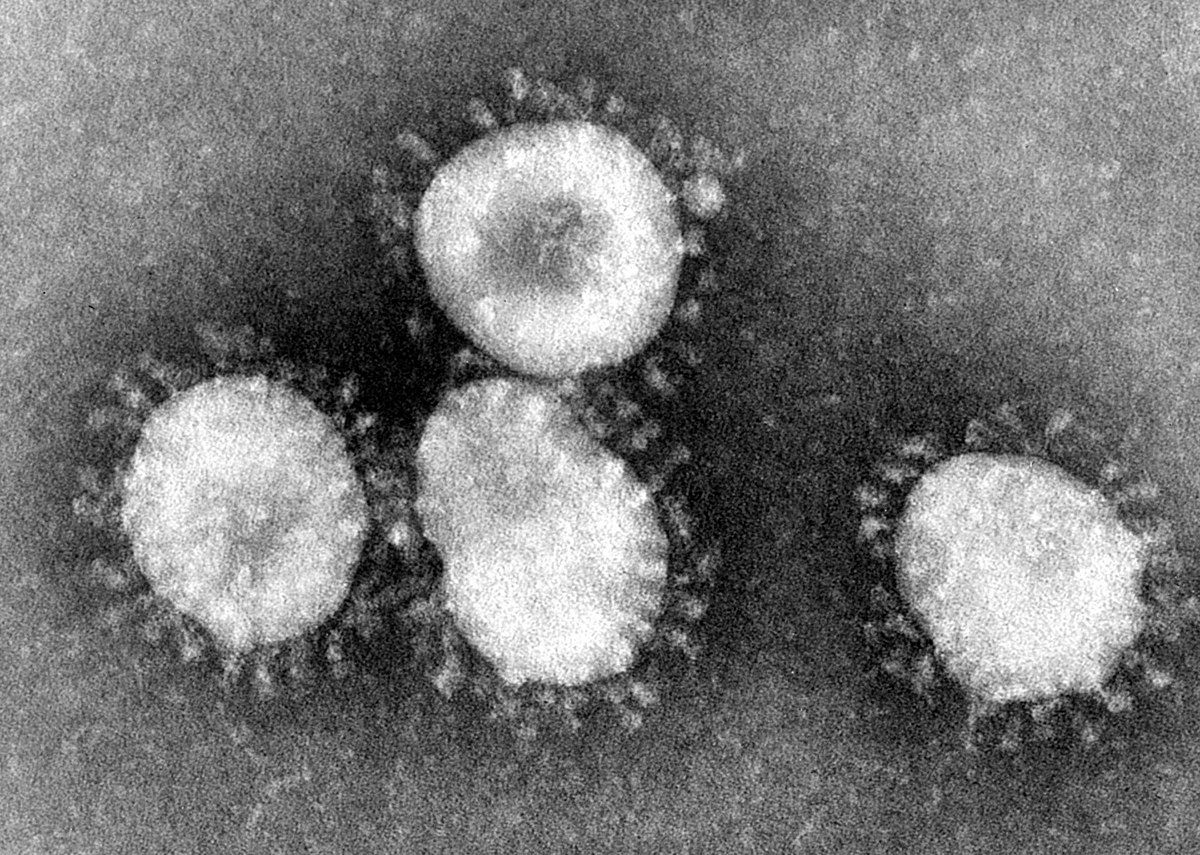Your coronavirus questions, answered

A few minutes every morning is all you need.
Stay up to date on the world's Headlines and Human Stories. It's fun, it's factual, it's fluff-free.
The coronavirus is taking the world by storm, spreading across the globe and understandably, many people still have questions about it.
The Millennial Source is here to help.
Below are answers to commonly asked questions about the disease.
What is the coronavirus?
The coronaviruses are a kind of virus. There are various types, and a few cause illness, wrote Lauren Sauer, director of research with the Johns Hopkins Biocontainment Unit.
“A newly identified type has caused a recent outbreak of respiratory illness,” said Sauer, adding that the illness, which began in China, is now described as COVID-19.
How did the coronavirus get started?
On December 31, Chinese health officials confirmed that dozens of individuals in Wuhan, China, were being treated for pneumonia from a mysterious origin. Many of those who were infected had gone to a live animal market in Wuhan. At the time, officials said there was no proof that the virus could spread to others/.
On January 11, Chinese state media announced that the first death from “novel coronavirus” was that of a 61-year-old man who had gone to the market.
How is coronavirus spread?
“(The coronavirus) is a new disease and we are still learning how it spreads,” according to the Centers for Disease Control and Prevention. But the CDC has also said that the disease is mostly spread person-to-person, among people who are in close contact with each other (inside six feet), via “respiratory droplets” that are expelled when a contaminated person sneezes or coughs.
What to know about coronavirus
Is the coronavirus contagious?
The coronavirus is contagious, wrote U.S. News & World Report’s Lisa Esposito.
Can the coronavirus be found on surfaces?
“What we know from coronaviruses is that they are very hardy and they like to stay on surfaces," says Dr. Carlos del Rio, a professor and chair of the Hubert Department of Global Health at Emory University’s Rollins School of Public Health.
How long does the coronavirus last in those infected?
“The illness lasts somewhere between two to three weeks, according to some estimates, although that isn’t definite,” wrote Esposito.
What is the coronavirus in dogs? Can you get the coronavirus from animals?
“You’re not going to get coronavirus from an animal," del Rio told U.S. News & World Report.
Although there were previous reports of a dog in Hong Kong said to have trace levels of the coronavirus, “[…] There is currently no evidence that pets or other domestic animals can be infected with this new coronavirus," reads a WSAVA advisory document on February 9.
Is the coronavirus deadly?
“Although most people eventually recover, coronavirus can be deadly,” Esposito wrote. “About 3,000 known deaths from coronavirus have occurred worldwide, to date.”
Who is most at risk for the coronavirus?
“So far, evidence suggests that older adults are more likely to develop coronavirus, with average ages in the late 50s,” according to the U.S. News & World Report. “Males have been affected slightly more often, at least in China.”
“We don’t know the reason for that," added del Rio.
Are antibiotics efficient?
“Antibiotics are used to treat bacterial infections,” Esposito wrote. “Because the coronavirus is a viral infection, antibiotics would not be effective to treat it.”
What actions are being taken to stop the coronavirus in the U.S.?
“The U.S. has been implementing an aggressive tracking strategy that requires detecting, tracking and isolating all cases, as much as possible, and preventing more introduction of disease, notably at points of entry," Dr. Nancy Messonnier, director of the National Center for Immunization and Respiratory Diseases, said in a February 26 news briefing.
“We’ve restricted travel into the United States, while also issuing extensive travel advisories for countries currently experiencing community spread."
Are masks beneficial or not?
“That depends on which mask you’re talking about," del Rio said. “But in general, the typical masks are not helpful for prevention. If I have a cold, if I have the flu and I need to go to the store, I put on (a) mask to prevent me from infecting others."
Is there a vaccine for the coronavirus?
There is no vaccine for the coronavirus to date, Esposito wrote.
“A lot of research is being done to create a vaccine for coronavirus," del Rio told the U.S. News & World Report. “We’re not there yet, but we are doing the best we can to develop a vaccine."
What are the symptoms?
Symptoms of the coronavirus can involve coughing, fever and lack of breath or trouble breathing, according to the Mayo Clinic.
“The severity of symptoms can range from very mild to severe,” according to the clinic. “People who are older or have existing medical conditions, such as heart disease, may be at higher risk of serious illness. This is similar to what is seen with other respiratory illnesses, such as influenza.”
Symptoms may materialize two to 14 days following exposure, according to the clinic.
How many people have died from coronavirus?
As of March 8, the coronavirus has taken more than 3,400 lives, according to CNN.
What to do if you think you have coronavirus
The CDC gave this advice for preventing the spread of the coronavirus if you are sick:
- Stay home except to get medical care
- Separate yourself from other people and animals in your home
- Call ahead before visiting your doctor
- Wear a facemask if you are sick
- Cover your coughs and sneezes
- Clean your hands often
- Avoid sharing personal household items
- Clean all ‘high-touch’ surfaces everyday
- Monitor your symptoms
- Stay at home until instructed to leave
How to prepare for the coronavirus
Healthline provided five “expert-backed ways” to get ready for the disease:
1) Purchase disinfectants and soap
“Health experts widely agree that frequent handwashing is the most effective way to avoid contracting (the coronavirus),” Healthline’s Julia Ries wrote. “So, the first thing to do is make sure you have a healthy supply of soap.”
“For preparation, I think the most important thing is to make sure they have enough soap — and that can be plain old bar soap to wash their hands on a regular basis,” Dr. Michael Ison, an infectious disease physician and professor of infectious diseases and organ transplantation at Northwestern University Feinberg School of Medicine, told Healthline.
“The virus may also be able to survive on surfaces for longer than a week, so disinfecting wipes can be useful,” Ries wrote.
2) Stock up on food, not masks
“Experts say that if you’re healthy, you probably don’t need to buy face masks. For one, they’re not going to be very effective in preventing you from getting sick,” Ries wrote. “Surgical masks are thin and have spaces through the sides where germs can easily get in. They’re mainly useful for people who are already sick to help limit how many respiratory droplets are shot into the air when they cough or sneeze.”
The Department of Homeland Security advised people to prepare by having two weeks’ worth of supplies and food.
“Having supplies that can help your household run normally for a few weeks is sufficient,” Dr. Manisha Juthani, a Yale Medicine infectious disease specialist, told Ries.
“Look for frozen foods and canned items that won’t go bad,” Ries wrote.
3) Purchase medication
“Over-the-counter medications like pain relievers, fever reducers, and decongestants are thought to help relieve milder symptoms of (coronavirus),” Ries wrote.
“I think one of the most important steps people can take right now is to be sure they have a 30- or 90-day supply of critical medications that may be hard to get due to supply chain interruptions,” Linda Lee, DrPH, an environmental health expert and chief medical affairs and science officer at UV Angel, told Healthline.
4) Touch base with school and work
“We’re probably going to see school and work closures in communities where activity is heightened,” Ries wrote. “Now’s the time to call your children’s schools and your boss and ask them about sick day policies so you can put a plan in place.”
“We will need to listen to the guidance of our public health officials that will be best equipped to inform these decisions. All parents need to have backup plans should their children need to remain home,” Juthani told Healthline.
5) Stay aware of what’s happening in your community
“If (the coronavirus) hits your community, first remember to stay calm and not to panic. Listen to the guidance of your local government and public health officials,” Juthani said.
“This is a quickly developing situation,” Ries wrote. “New information comes out every day, so how we should prepare and respond will likely evolve in the coming days and vary from community to community.”
Until then, practice good hygiene as you would over the course of any flu or cold season, Lee told Healthline.
What to do to prepare for coronavirus
“Plan ahead and be ready,” the CDC says. “Create a household plan of action.”
The CDC gave this advice regarding creating a household plan of action:
- Talk with the people who need to be included in your plan
- Plan ways to care for those who might be at greater risk for serious complications
- Get to know your neighbors
- Identify aid organizations in your community
- Create an emergency contact list
The CDC also says to “Practice good personal health habits and plan for home-based actions.”
“Practice everyday preventive actions now,” the CDC says. “Choose a room in your home that can be used to separate sick household members from those who are healthy.”
“Be prepared if your child’s school or childcare facility is temporarily dismissed,” the CDC adds. “Learn about the emergency operations plan at your child’s school or childcare facility.”
Plan for potential changes at your workplace,” the CDC says. “Learn about your employer’s emergency operations plan.”
What to do to prevent coronavirus
“Hand hygiene, such as frequent handwashing or use of hand sanitizers, is a major recommendation,” Esposito wrote. “Avoiding exposure to people with respiratory infections and not going out if you’re sick can prevent the virus from spreading.”
Seclusion figures into the management of the coronavirus, according to the U.S. News & World Report.
“People with milder cases are advised to stay home and follow infection-control precautions,” Esposito said. “Hospitalized patients are typically placed in an airborne infection isolation room.”
What to stock up on for coronavirus
Food
“Canned foods that have a long storage life and need little or no cooking are recommended,” according to USA TODAY’s Mike Snider and Veronica Bravo.
“Meat products, fish or beans, soups, broths and stews, fruits and fruit juices, vegetables, canned (or powdered) milk, are among good supply choices recommended by the Texas A&M Agrilife Extension Disaster Education Network.”
“Frozen foods are an option, too,” according to USA TODAY. “Other recommended foods are peanut butter, jelly, crackers, nuts, trail mix, dried fruits, granola bars, bouillon cubes, and staples like sugar, salt, pepper.”
Water & liquids
“The CDC suggests you have plenty of fluids on hand, such as bottled water and supply of fluids with electrolytes, such as Pedialyte or Gatorade,” according to USA TODAY.
Medicine
“You will want to have a 14-day supply of any prescription medications for those in your home,” according to USA TODAY. ”You may also want over-the-counter pain relievers, antacids, cough and cold medicines, and vitamins.”
Supplies
“Many homes already have a 14-day supply of most daily items on hand,” according to USA TODAY. “But make sure you have toothpaste, toilet paper, feminine supplies, diapers, laundry detergent and disinfectant.”
Other items
“Perhaps have some board games, cards, toys books, magazines and other fun items to keep the family occupied,” according to USA TODAY.
[article_ad]
Have a tip or story? Get in touch with our reporters here!




Comments ()